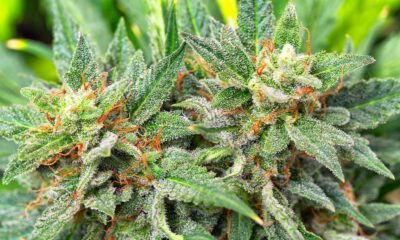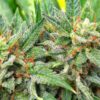
Joint Opinions
How to Be An Informed Cannabis Consumer
The Chief of Cultivation at a Los Angeles dispensary provides some very important tips.
Being a consumer in the brave new world of legal cannabis markets can be an intimidating, confusing experience. Dispensary shelves can contain dozens of varieties of cannabis flower, as well as hundreds (or even thousands) of other assorted products; new products are seemingly released daily; labels can contain hard-to-pronounce, sometimes scary-sounding chemicals; and lab testing results show percentages of compounds that science does not even understand completely. On top of all that, since the industry is so new, most companies have not yet had time to gain a reputation as a trusted grower or product manufacturer that consumers can count on for consistency and quality. In some cases, people even disagree on what constitutes “quality” in a cannabis product.
As the cannabis industry continues to mature, it is often said that consumers will become more discerning. But what does that mean? What should you be concerned about when deciding how to spend your hard-earned money?
There’s a Lot More to Cannabis than THC (and CBD)
The cultivators and dispensaries that I work with consistently tell me that one of the biggest factors in a product or batch of cannabis selling quickly is high THC test results. However, THC — and even the combination of THC and CBD — do not tell the whole story. Many cannabis researchers are supportive of the theory of the Entourage Effect, put forward by Raphael Mechoulam, the scientist who first discovered THC and CBD. In basic terms, it states that the effects of a particular variety of cannabis are the result of synergistic actions by all of the plant’s components: the dozens of cannabinoids, terpenes, flavonoids, and other compounds produced by cannabis. Terpene testing is available in many legal markets and should be being performed by top organizations that are truly trying to dial in their strains, as they play a big role in the effects caused by the final product. Ask to see terpene profiles in addition to those of cannabinoids.
Is it Organic?
Cannabis cannot at this time be certified organic, as that program is regulated by the federal government, and many companies using the term are doing so incorrectly. Ask about how the plants are fertilized. Most growers use some form of hydroponics, which cannot be organic, as they employ synthetic nutrients as fertilizers. However, if growers are using natural fertilization sources, such as kelp, earthworm castings, molasses, guano, and materials of that nature, then it is likely that their approaches are closer to what is known as “organic.” It’s also a big plus if they mention beneficial microbes, which can play a huge role in naturally boosting plant health and contributing to a higher-quality final product.
The production and use of synthetic fertilizers is also not environmentally friendly and standards that organic operations must follow include conserving natural resources and protecting biodiversity, which are also principles that are important to some consumers. Ammoniacal nitrogen is produced through the Haber-Bosch process, which requires significant fossil fuel inputs (typically natural gas derived from fracking) and results in greenhouse gas emissions. Run-off from synthetic nitrogen fertilizer has resulted in massive “dead zones” where algal blooms kill fish and other organisms by starving them of oxygen. For a peek into the impact of phosphate mining, look up the history of the Pacific Island nation of Nauru, which has basically been stripped bare due to demand for fertilizer. Cannabis is at this point a tiny percentage of the world’s agriculture, but being a small part of a big problem doesn’t help anything. If buying organic is important to you in regard to food, then ask for cannabis grown in soil with natural fertilization and avoid product grown in hydroponic systems, which includes using synthetic fertilizers in inert media such as coconut coir and rockwool.
The Indoor vs. Outdoor Debate
The prevailing opinion in the industry is that indoor grown cannabis is superior to outdoor. I am here to tell you that is not always the case; that prejudice is partly based on outdated notions of outdoor product from prohibition. At that time, illegal growers did not care for their plants; the main goal was not getting caught. Now, in legal states skilled cultivators are growing incredibly high-quality greenhouse and outdoor product. The full spectrum of the sun also cannot be matched by any lighting technology that exists today, and it promotes the development of cannabinoids and terpenes differently (better, in my opinion) than any artificial lamp ever could. Finally, if environmental impact plays a role in your consumer decisions, then you will want to ask for greenhouse or outdoor-grown product, which have a drastically smaller carbon footprint compared to the energy-hogging nature of indoor grown cannabis.
Watch Out for Pesticides…
Unfortunately, the recalls in Denver have shown that a significant amount of legal cannabis growers are using chemical pesticides improperly. Right now, we don’t know if pesticides can be safely used on cannabis as no research has been done to this point. Ask about the grower’s IPM practices. IPM means Integrated Pest Management and any good cultivator should be able to talk about their holistic pest control strategies. See if they talk about cleanliness, prevention, environmental control, resistant varieties and, again, using natural materials such as extracts of garlic, thyme, cayenne pepper and the like. Conscientious cultivators absolutely can bring in pest-free crops without the potentially highly toxic chemicals being used by some growers.
How Old Are Those Tests? And What Lab Performed Them?
Many dispensaries will happily show you or quote you test results for their products, but are those results actually relevant for what you are actually buying? Test results can vary from harvest to harvest, as changes in environmental conditions, fertilization, the amount of time a plant was allowed to flower and other factors can all alter the cannabinoid and terpene profile of a plant. Ask if the test results are for the particular harvest batch (or production batch, in the case of infused products) that you are being sold. Historical tests can provide some idea of the characteristics of a strain or product, but will not always be accurate.
Make sure to ask what labs are doing the testing and do some research on them too. Some labs are unfortunately not equipped to provide accurate results and some have even been accused of faking favorable results for growers in order to bring in more business. It is difficult for those without science backgrounds to understand how to evaluate a lab, but a simple question would be, what type of equipment is a lab using? My contacts at Agricor Labs, one of the leading operations in Colorado, tell me that Agilent and Waters are the top laboratory equipment manufacturers; everything else is a distant third, at best. Unfortunately, to save money, some labs are buying cheaper brands of equipment, or even purchasing old machinery second-hand. Also investigate the background of the people running the lab. Look for individuals that came from the medical, pharmaceutical, or agricultural fields and have significant experience in testing other crops or products for quality and safety.
As you can see, there’s a lot to think about as a cannabis consumer and the issues above are just the tip of the iceberg. Still, your budtender will probably not be able to answer all of the questions raised here, as most dispensaries buy cannabis and other products from many different suppliers. But, if enough people ask them, dispensaries, growers and infused product manufacturers will be forced to educate those selling their products on exactly what makes them better, or possibly even change their practices if they are not in line with what consumers are demanding. While the newness of the industry itself can be a little overwhelming, it’s also a truly unique opportunity that we have to be able to set the standards and collaborate in deciding where we want this field to go. Being an informed, selective consumer and voting with your dollars is one of the most effective ways to shape the industry and make sure that the types of products you are happy to purchase will have a place on dispensary shelves. If we want safe, high-quality, reliably tested and responsibly produced cannabis — and who wouldn’t? — then we have to start asking for it.
TELL US, do consider any of this criteria when buying cannabis?

























